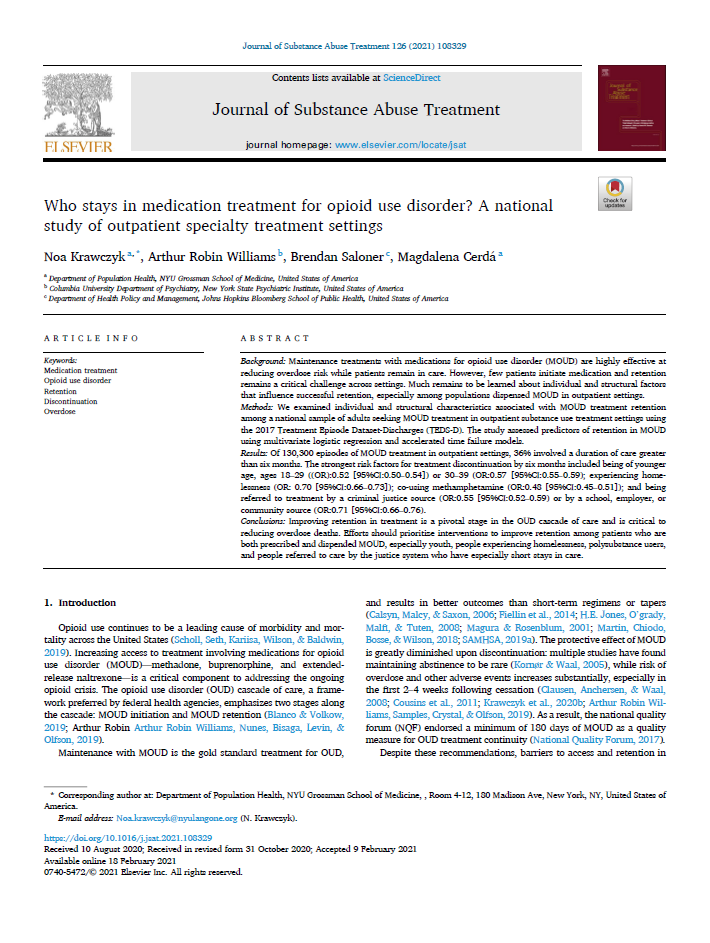Headline
Study identifies predictive factors in individuals’ adherence to medication for opioid use disorder (MOUD) in outpatient settings.
Context
Too few people with opioid use disorder are receiving MOUD. Yet, MOUD treatment retention is important for protection against adverse events, such as overdose. Demographic and social factors may impact treatment retention. This study examines a national database of substance use treatment facility discharges to understand what factors are associated with early MOUD discontinuation.
Findings
An analysis of 130,300 treatment episodes found that 36% of patients had continued treatment for longer than six months. Patients at highest risk for discontinuation before six months were younger than 40, experienced homelessness, reported accompanying methamphetamine use, and were referred by the criminal legal system, a school, employer, or community provider. Adherence also varied by geography, where Arizona, District of Columbia, and Puerto Rico reported the greatest adherence — between 58% and 70% after six months.
Takeaways
This study highlights populations that may need additional outreach to improve MOUD treatment adherence. Providers and health plans can consider these factors when reviewing existing interventions to reduce barriers to access.

